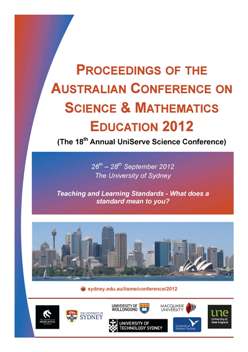Personal standards: Measuring the impact of values and identity on first-year physics learning
Abstract
This paper explores how beliefs about self affect learning when students could feel performance anxiety. We examine the generalisability to Australian science students of recent work in USA. The gender gap in physics performance (well-known from literature - females lagging behind males) was eliminated via a value-affirmation intervention [Miyake et al, 2010]. The theory is that those who identify with a group “known” not to perform well experience “identity threat”; if they think about values important to them personally, they perform better because of a bolstered sense of self. • Are Australian students susceptible to stereotype threat relating to gender? • Is the value-affirmation exercise proven in one context transferable to ours? • Can it improve learning performance of those who are fearful of physics, perhaps because of previous education? We measure how strongly and how commonly students endorse a negative belief that “other” people succeed, in core physics and service teaching courses. We surveyed confidence and attitudes. Statistical analysis of pre- and post- instruction results on a well-established physics diagnostic test will be presented, showing the distribution of assessment performance for randomly-assigned control vs intervention groups, and with respect to the strength of endorsement of negative beliefs. Miyake, A. et al, “Reducing the gender achievement gap in college science: A classroom study of values affirmation”, Science vol. 330 26 November 2010 pp1234-1237Downloads
Published
2012-08-24
Issue
Section
Abstracts
